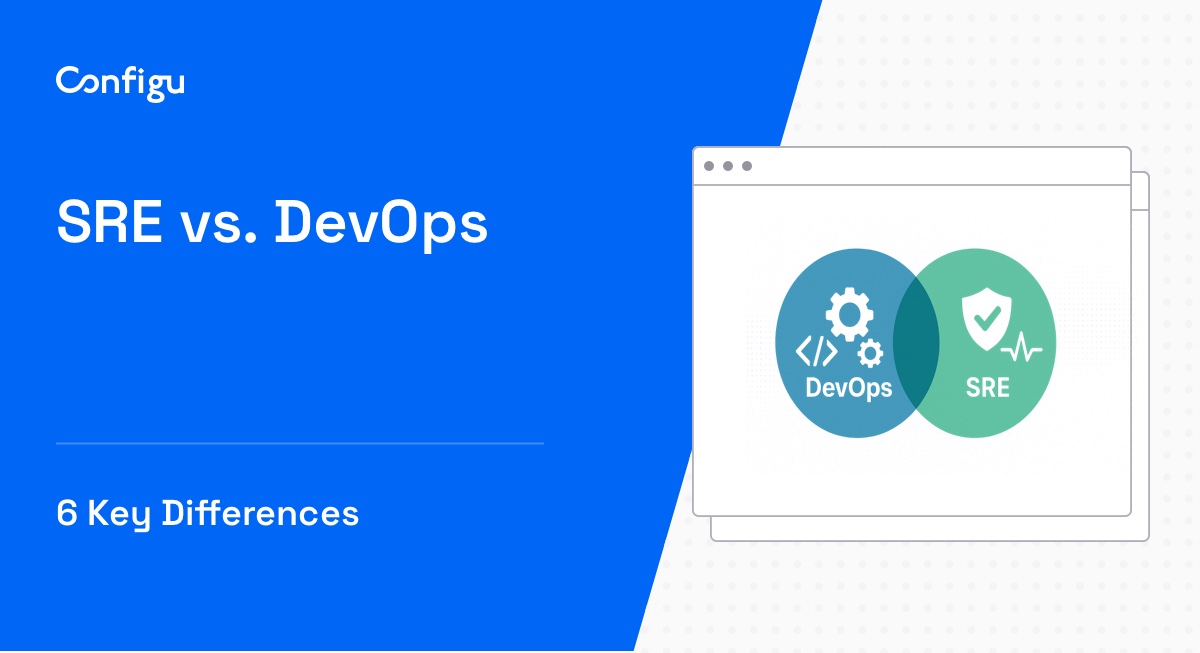What Is HashiCorp Vault?
HashiCorp Vault is a secrets management tool, allowing secure access control and storage of sensitive information such as tokens, passwords, certificates, and encryption keys. Its design focuses on protecting data, managing secrets and providing encryption as a service through a unified interface.
Vault supports multiple backends, can be deployed in the cloud or in internal data centers, and enables fine-grained access control policies. It ensures the security and confidentiality of secret data with dynamic secret generation, leasing and renewal, and revocation mechanisms.
In this article:
HashiCorp Vault Limitations
While Vault is a robust and widely used tool, it has several limitations that might make it difficult to adopt. These limitations were reported by users on the G2 platform.
Complex Setup and Configuration
Setting up and configuring HashiCorp Vault can be challenging for complex use cases. This complexity can be a significant barrier for smaller teams or organizations with limited technical resources. The lack of up-to-date documentation and missing configuration examples add to this difficulty, making it less clear how to integrate Vault into day-to-day operations.
Steep Learning Curve
Vault’s functionality comes with a high learning curve. New users may find it difficult to learn its command syntax and parameter usage, which can sometimes be inconsistent and confusing. The documentation is not always current, leaving users without sufficient guidance on best practices and integration strategies.
Token Management Challenges
Managing tokens within Vault can present challenges, particularly when trying to identify and delete tokens based on user-friendly identifiers. This process often requires multiple API calls.
Additionally, Vault has some limitations in its support for signing code and binaries in CI/CD environments, making it necessary to share keys to use digital signatures. This makes it more difficult to integrate it with CI/CD tools.
Related content: The GitOps Guide
6 Notable HashiCorp Vault Alternatives and Competitors
Due to the above limitations, many organizations seek a Hashicorp Vault alternative. Here are several popular tools you should consider.
1. Configu
Configu is a configuration management platform comprised of two main components:
Configu Orchestrator
As applications become more dynamic and distributed in microservices architectures, configurations are getting more fragmented. They are saved as raw text that is spread across multiple stores, databases, files, git repositories, and third-party tools (a typical company will have five to ten different stores).
The Configu Orchestrator, which is open-source software, is a powerful standalone tool designed to address this challenge by providing configuration orchestration along with Configuration-as-Code (CaC) approach.
Configu Cloud
Configu Cloud is the most innovative store purpose-built for configurations, including environment variables, secrets, and feature flags. It is built based on the Configu configuration-as-code (CaC) approach and can model configurations and wrap them with unique layers, providing collaboration capabilities, visibility into configuration workflows, and security and compliance standardization.
Unlike legacy tools, which treat configurations as unstructured data or key-value pairs, Configu is leading the way with a Configuration-as-Code approach. By modeling configurations, they are treated as first-class citizens in the developers’ code. This makes our solution more robust and reliable and also enables Configu to provide more capabilities, such as visualization, a testing framework, and security abilities.
Learn more about Configu for secrets management
2. Cyberark Conjur
CyberArk Conjur is a centralized secrets management solution designed to address common challenges in securing, rotating, and managing secrets sprawled across various applications, vaults, tools, and source code. It provides secure access control for tools, applications, and cloud environments.
Pros of CyberArk Conjur:
- Secretless broker: Offers simplified security within Kubernetes and Red Hat OpenShift environments by enabling applications to connect to services without needing to manage secrets.
- Secrets management REST API: Allows for easy integration with tools like Postman for managing secrets.
- AWS IAM authenticator: Supports authentication of access requests to Conjur using AWS IAM, ensuring secure and streamlined access control.
- Java secrets management SDK: A dedicated SDK for securing Java applications through the Conjur Java API, facilitating secure application development and integration.
Cons of CyberArk Conjur:
- Complexity in initial setup: The initial setup and configuration of CyberArk Conjur can be complex, particularly when integrating with existing systems and applications.
- Limited customization for smaller environments: CyberArk Conjur is suited for large enterprises but might be less flexible or overly complex for smaller environments.
- Learning curve and documentation: The learning curve for effectively using CyberArk Conjur can be steep, especially for users not familiar with advanced security and secrets management concepts. The documentation can be overwhelming for beginners.
- Cost: While the core features of CyberArk Conjur are available in a free version, significant costs can be associated with scaling the solution in large deployments.
Pricing:
- While CyberArk Conjur Secrets Manager is free, using it incurs infrastructure costs.
- For example, EC2 charges for the US East Region (North Virginia) start at $0.067 per hour for a medium instance and go up to $5.52 per hour for a d2.8xlarge instance.
Source: CyberArk
3. Infisical
Infisical is an open-source platform tailored for secret management, including securely managing application configurations and secrets across teams and infrastructure. It can secure over 50 million secrets daily across various programming languages through direct cURL commands.
Pros of Infisical:
- Language support: Supports popular programming languages including Node, Python, Java, and .NET.
- CLI: Enables the transition from .env files to the Infisical CLI, ensuring secrets are always synchronized with team members. This tool is compatible with various platforms and frameworks.
- Web dashboard: Provides a simple and intuitive interface for managing secrets, environments, and applications, enhancing usability and accessibility.
- Secret leak prevention: Features automatic detection and prevention of secret leaks to git, equipped with continuous monitoring and pre-commit checks that support over 150 secret types.
- Secret versioning: Allows tracking of secret changes, offering the ability to roll back to any version at any given time.
Cons of Infisical:
- Dependency on a third-party Service: Relying on Infisical introduces a dependency on their service for critical aspects of infrastructure security. If their service experiences downtime or disruptions, it could impact access to critical configuration data.
- Complexity in setup and management: For organizations without prior experience in using secrets management systems, setting up and managing Infisical can be complex.
- Limited control over security practices: By using a third-party service, companies have limited control over the specific security measures and practices employed to protect their stored secrets, relying instead on Infisical’s protocols and security updates.
Pricing:
- The Basic edition is free forever.
- The Pro edition priced at $15 per month per developer (for an annual subscription).
- For the Enterprise edition is available, pricing is available upon request.
Source: Infisical
4. Akeyless
Akeyless is a secrets management platform that provides a centralized system for handling digital secrets, credentials, and access across multiple environments. Designed to cater to enterprises looking for scalable security solutions, Akeyless offers enhanced security features that include zero-knowledge encryption, ensuring that only authorized users have access to sensitive information.
Pros of Akeyless:
- Scalability: Efficiently manages secrets across multiple clouds and platforms.
- Security: Features robust encryption and a zero-knowledge model for enhanced data protection.
- Automation: Automates the management of secret lifecycles and certificates, reducing manual overhead and potential errors.
Cons of Akeyless:
- Insufficient documentation: Users have suggested that the platform could provide more comprehensive documentation.
- Potential single point of failure: As a centralized platform for secrets management, it can become a single point of failure in the event of an outage.
- Expense: Users report that the cost of the platform exceeded their expectations.
Pricing:
- There is a free trial for small projects with up to five clients.
- For larger projects and more extensive functionality, such as 24/7 support, pricing is available upon request.
Source: Akeyless
5. AWS Secrets Manager
AWS Secrets Manager is a service designed to manage the lifecycle of secrets such as database credentials, API keys, and other sensitive information. It enables secure encryption and centralized auditing of secrets, alongside fine-grained access management using AWS Identity and Access Management (IAM) and resource-based policies.
Key features of AWS Secrets Manager:
- Secure secrets storage: Secrets are encrypted at rest using keys from AWS Key Management Service (AWS KMS). When retrieved, secrets are decrypted and transmitted securely over TLS, with access controlled by detailed IAM and resource-based policies.
- Automatic secrets rotation: Enables automatic rotation of secrets on-demand or on a scheduled basis. It supports native rotation for Amazon RDS, Amazon DocumentDB, and Amazon Redshift credentials, with the capability to extend this functionality to other AWS or third-party services through customizable Lambda functions.
- Automatic replication across AWS Regions: To meet disaster recovery and cross-regional redundancy requirements, Secrets Manager can replicate secrets to multiple AWS Regions automatically.
- Audit and monitor secrets usage: Through integration with AWS logging, monitoring, and notification services, enables auditing and monitoring of secrets. It allows for auditing secret creation and rotation via AWS CloudTrail logs and configuring Amazon CloudWatch for notifications on secrets usage or rotation events.
Cons of AWS Secrets Manager:
- Cost at scale: AWS Secrets Manager can become costly, especially for organizations managing a large number of secrets or those that make frequent API calls. This is because the pricing model is based on the number of secrets managed and API calls made.
- Integration complexity: Some users report challenges with integrating AWS Secrets Manager across non-AWS environments, which can limit its utility in hybrid or multi-cloud deployments. This may require additional tools or custom solutions to bridge these gaps.
- Regional availability: Although AWS Secrets Manager supports multi-region replication, the initial setup and ensuring that all regional deployments are consistent can be complex and require significant configuration and management effort.
Pricing:
- There is a free trial available for 30 days.
- Secrets are priced at $0.40 per month per secret.
- API calls are priced at $0.05 charged per 10,000 calls.
Source: Amazon
6. Azure Key Vault
Azure Key Vault offers a secure way to manage cryptographic keys and other secrets like passwords, used by cloud applications and services. It emphasizes enhancing data protection and compliance through the encryption of keys and small secrets using hardware security modules (HSMs). Key Vault supports the importation and generation of keys within HSMs that are validated to FIPS 140-2 Level 2 for vaults and Level 3 for HSM pools.
Key features of Azure Key Vault:
- Security and control: Ensures increased security and control over cryptographic keys and passwords, using FIPS 140-2 Level 2 and Level 3 validated HSMs for key encryption and management.
- Simplified management: Offers a solution to provision, configure, and manage keys and secrets, eliminates the need for direct application access to keys, streamlines the management of SSL/TLS certificate tasks, and supports the importation of keys from user-owned HSMs.
- Reduced latency and global scale: Improves the performance of cloud applications by reducing latency through cloud-scale and global redundancy. Scales up to meet the cryptographic demands of large-scale applications and supports provisioning across Azure global datacenters for redundancy.
- Automated tasks for SSL/TLS certificates: Simplifies and automates the enrollment and renewal of certificates from supported public Certificate Authorities.
Cons of Azure Key Vault:
- Complex management and setup: Azure Key Vault can be complex to set up and manage, especially for users who are not familiar with Azure’s ecosystem. The management of keys and secrets often involves navigating multiple layers of Azure’s security infrastructure.
- Cost of high transaction volumes: While Azure Key Vault has a relatively low cost for operations, high volumes of transactions or operations can lead to significant costs, particularly when using HSM-protected keys where additional fees apply.
- Integration with non-Azure environments: Users often face challenges when integrating Azure Key Vault with non-Azure applications. While it is designed to work seamlessly within the Azure ecosystem, extending this functionality outside Azure requires additional effort and can sometimes lead to compatibility issues.
- Limited flexibility in fine-grained access control: Although Azure Key Vault provides robust access policies, some users might find the options for fine-grained access control less flexible compared to other solutions.
Pricing:
- Available in Standard and Premium versions with a flat rate of $0.03 per 10,000 secrets operations.
- There are additional charges for software-protected and HSM-protected keys and a $1 fee per key rotation.
Source: Azure
Tips From the Expert
In my experience, here are tips that can help you better evaluate and use HashiCorp Vault alternatives:
-
Consider hybrid cloud integration capabilities
If you’re operating in a multi-cloud or hybrid cloud environment, prioritize alternatives like Akeyless or CyberArk Conjur, which offer flexible integration with multiple cloud providers and on-premise environments, reducing operational friction. -
Focus on native CI/CD integration
Choose alternatives that support seamless integration with your CI/CD pipelines. Tools like AWS Secrets Manager and Azure Key Vault offer built-in integration with their respective cloud-native CI/CD tools, while Infisical simplifies secrets management for CI/CD through its CLI. -
Assess automation support for secret rotation
Automating secrets rotation reduces the risk of stale or compromised secrets. AWS Secrets Manager and Akeyless excel in automating secret lifecycle management, whereas CyberArk Conjur’s token lifecycle features are ideal for large-scale enterprise needs. -
Evaluate audit and monitoring features
If auditing and tracking access to secrets are critical, prioritize tools like Azure Key Vault or AWS Secrets Manager that offer detailed audit logs and easy integration with logging and monitoring solutions like CloudWatch or Azure Monitor. -
Use secret versioning for improved incident response
Infisical and Configu offer secret versioning, enabling you to track changes, rollback in case of issues, and maintain an audit trail of sensitive data access, which can be critical during security incident investigations.
Conclusion
While HashiCorp Vault has established itself as a leading secrets management tool with robust features to safeguard sensitive information, it’s important to be aware of viable alternatives that may better suit specific organizational needs or address its limitations—ranking from complexity of setup and a steep learning curve to challenges in token management and CI/CD integration.
The Hashicorp Vault alternatives we presented include solutions tailored for centralized management, open-source platforms with extensive language support, tools enhancing productivity and security in password management, and services offered by major cloud providers. These Vault alternatives present multiple options to achieve more effective and secure secret management practices.



